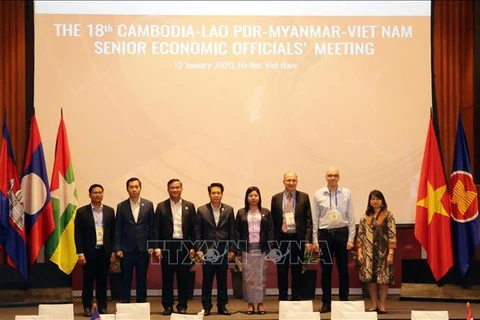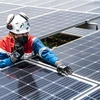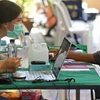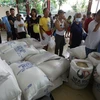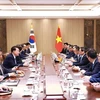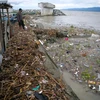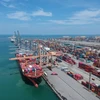Singapore (VNA) – The COVID-19 pandemic is putting severe growth pressure on the economies of Cambodia, Laos, Myanmar and Vietnam (CLMV) and may cause the region's growth to slip to a historical low, according to a Maybank Kim Eng report.
CLMV’s GDP growth is forecast to slow sharply to 3 percent in 2020, down from 6.9 percent in 2019, before recovering to 6.5 percent in 2021, the report said.
Vietnam is expected to do better than the rest with 3.6 percent growth, thanks to a more diversified economic structure, and a healthier fiscal position and macro fundamentals, though that figure is still a sharp fall from 7 percent growth last year.
Vietnam also appears to have successfully brought the COVID-19 pandemic under control, and became the first country in ASEAN to start easing social distancing measures on April 23, with trade and retail businesses allowed to reopen, and public transport resuming.
In contrast, Cambodia will be worst hit with just 0.5 percent growth, down from 7 percent in 2019. This is due to a high reliance on tourism, with tourism and transport-related sectors accounting for 12.3 percent of its GDP, and exports of textiles and garments.
Cambodia has yet to impose nationwide lockdown measures, though a state of emergency bill was recently passed, which will allow the government to impose restrictions.
Myanmar is expected to see growth of 2 percent this year, down from 6.8 percent in the previous year. The country is highly reliant on tourism, with tourism and transport-related sectors accounting for up to 11.2 percent of its GDP – a figure which could be even larger if accommodation and food services are taken into account.
It is also most vulnerable to the collapse in manufacturing and export demand, with manufacturing accounting for 24.2 percent of GDP.
Laos may be more immune, with manufacturing accounting for just 7.5 percent of GDP and tourism and transport, 3.9 percent. But its heavy reliance on electricity and gas instead (10.8 percent) could hurt the economy as factories shut and travel slows.
Growth in Laos is predicted at 2.4 percent in 2020, down from 4.7 percent last year./.
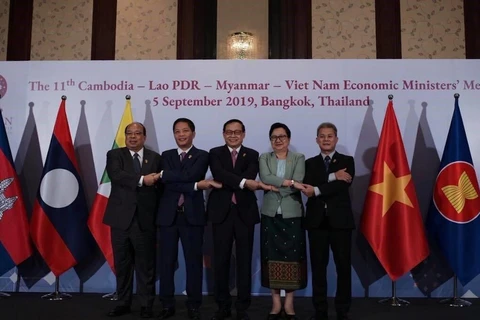
Ministers vow coordination for successful CLMV action plans
Economic ministers of Cambodia, Laos, Myanmar and Vietnam (CLMV) affirmed the countries’ coordination to successfully carry out CLMV action plans at their 11th meeting in Bangkok on September 5.



